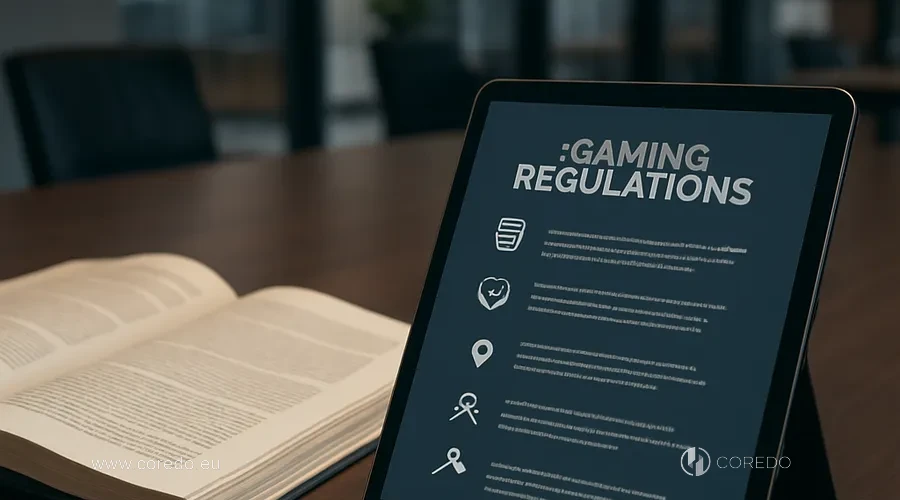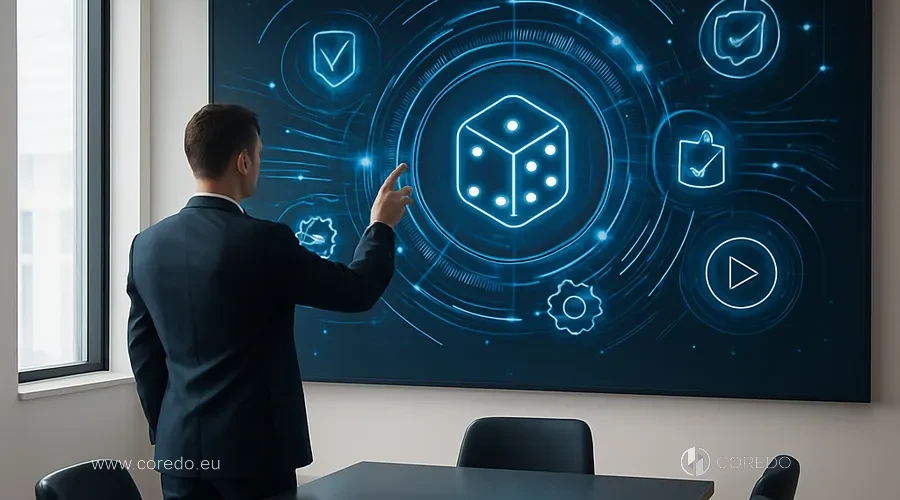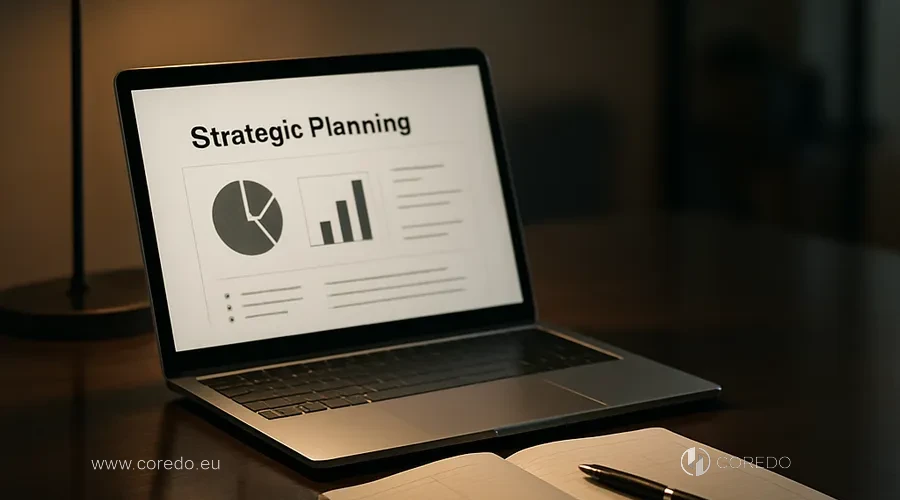In 2025 the global iGaming and gambling market continues to grow at double-digit rates, and the volume of bets in the online segment alone has exceeded $100 billion: and this is only the official data from the largest regulators. At the same time, behind these impressive figures lies another reality: according to estimates by European and Asian research centers, up to 40% of online operators face legal and financial restrictions due to the absence of a proper gambling license or non-compliance with iGaming regulations.
Why are leading entrepreneurs and investors, despite the availability of “quick” solutions, increasingly choosing complex and costly licenses such as the Malta Gaming Authority (MGA) license? What impact do new compliance frameworks, AML/KYC and player protection requirements have on the strategy for entering the markets of Europe, Asia and Africa? And most importantly: how can licensing-related risks be minimized and long-term business growth ensured amid tightening regulation?
These questions are asked every day by owners and top managers who turn to COREDO for practical solutions. In this article I will analyze key concepts in detail, compare the main jurisdictions, outline compliance requirements and share strategies that the COREDO team successfully implements for clients in the EU, Asia and the CIS. If you want not just to obtain a license but to build a sustainable international business, read to the end: you will find answers to the most pressing questions, backed by real experience and industry best practices.
Gaming and Gambling License: what it is and types of licenses

Gaming license and gambling license: these are official permits issued by the regulatory authority of a given jurisdiction to conduct activities in the field of gambling and iGaming. Without a valid license it is impossible to operate legally in most markets: the absence of a license leads to payment blocking, restricted access to players and the risk of criminal liability.
In COREDO practice we clearly distinguish licenses by business model:
– B2C gaming license – for operators dealing with end players (online casinos, sports betting, lotteries, poker rooms).
– B2B gaming license: for companies providing services to other operators (software developers, aggregators, platform providers, payment services).
Classification by license types is also important, especially in the EU. For example, the Malta Gaming Authority issues licenses of four types:
– Type 1 gaming license (MGA) – games based on a random number generator (casinos, lotteries).
– Type 2 gaming license (MGA) – fixed-odds event betting (sports betting).
– Type 3 gaming license (MGA) – peer-to-peer (poker, bingo).
– Type 4 gaming license (MGA), B2B, critical suppliers of gaming software.
There are also remote gambling licenses, interactive gaming licenses, licenses for white-label operators, game developers, platforms and even for affiliate marketing. This approach allows flexible business structuring and tax optimization.
Jurisdictions for obtaining licenses: comparison
Over the years, the COREDO team has implemented projects in key jurisdictions: Malta, Curacao, Anjouan (Comoros), as well as in a number of countries in Europe, Asia and Africa. The choice of region directly affects the entry cost, compliance requirements, market access and investment attractiveness.
| Jurisdiction | Compliance | Cost and timing | Taxes and reporting | registration requirements | Crypto/innovation | Reputation/Market access |
|---|---|---|---|---|---|---|
| Malta (MGA) | Very high | €40-100k, 6-12 months | 5-35%, strict reporting | Local company, office, staff | Limited | Maximum (EU, UK, Asia) |
| Curacao | Medium | $18-30k, 2-3 months | 0-2%, simplified reporting | Local company, minimum requirements | Crypto-friendly | Medium (restrictions in the EU) |
| Anjouan (Comoros) | Low | $20-25k, 2-4 weeks | 0%, minimal requirements | No local company required | Full support | New, growing |
| United Kingdom (UKGC) | Very high | £50-150k, 9-18 months | 15-21%, complex reporting | Local company, staff | Limited | Maximum |
| Estonia, Slovakia | High | €25-50k, 3-6 months | 5-20%, reporting | Local company | Crypto-friendly (limited) | High (EU) |
| Asia (Philippines, Singapore) | Medium-High | $30-100k, 2-6 months | 5-30%, reporting | Local company | Crypto/innovation | Fast access to Asian markets |
| Africa (Kenya, South Africa) | Medium | $10-30k, 2-6 months | 5-30%, reporting | Local company | Crypto-friendly | Growing market |
Malta license: MGA conditions and requirements
Malta Gaming Authority, a recognized industry leader whose compliance standards have become a benchmark for the EU and the UK. The MGA license requires:
– Strict AML/KYC: mandatory player verification, transaction monitoring, implementation of anti-fraud and transaction monitoring systems.
– Responsible gaming: implementation of tools for player protection, limits, self-exclusion, session timers.
– Regular audits: annual checks of financial reporting, technical systems, and KYC/AML procedures.
– High cost: total expenses for obtaining and maintaining an MGA license reach €100 000+ in the first year, and the process takes up to 12 months.
– Benefits: maximum access to EU markets, a high level of trust from banks, payment providers and partners.
Solutions developed by COREDO for clients include comprehensive business plan preparation, implementation of a compliance framework, setup of Due Diligence processes and preparation for the MGA audit. This approach allows not only obtaining the license, but also building a sustainable business model for scaling in Europe.
Due to strict regulation and a high level of trust, choosing an MGA license becomes an optimal solution for scaling in the EU market: next we will consider the advantages and limitations of the Curacao gaming license.
Curaçao gaming license – advantages and limitations
The Curacao gaming license has traditionally been considered a “fast” and inexpensive alternative for starting an iGaming business. Among the advantages:
– Simplicity and speed: the licensing process takes 2-3 months, and the document package is minimal.
– Low costs: license cost from $18 000, tax burden minimal (0-2%).
– Crypto-friendliness: support for cryptocurrency payments, flexibility for innovative products.
However, COREDO’s experience shows that since 2024 a reform is underway in Curacao: the Curaçao Gaming Authority (CGA) has been created, AML requirements/KYC are being strengthened, and regular audits are being introduced. This increases trust in the license but requires more serious preparation of the compliance framework.
Among the limitations are limited access to EU and UK markets, risks of payment blocking, and the need for constant monitoring of legislative changes.
Anjouan gaming license
The Anjouan gaming license (Comoros) is a relatively new product that the COREDO team successfully implements for clients focused on rapid scaling and working with cryptocurrencies.
– Speed and simplicity: obtaining the license takes 2-4 weeks, and there is no requirement to register a local company.
– Crypto-friendly: support for all modern payment solutions, including stablecoins and DeFi.
– Minimal audit and compliance requirements: basic AML/KYC procedures, flexibility in choosing software and partners.
– Risks: since the license is still gaining reputation, there may be restrictions from certain payment providers and partners.
For COREDO clients, the Anjouan license often becomes an optimal solution for testing new markets, launching white-label platforms and B2B services.
Thanks to these features, the Anjouan license allows you to quickly launch projects and test a business model with minimal legal barriers.
Next, we will look at the key regulatory requirements and the specifics of their application in iGaming.
Regulatory requirements for iGaming: what you need to know

Modern iGaming business is impossible without a comprehensive approach to gambling compliance. International standards require implementation of:
– AML for gambling operators: automated systems for detecting suspicious transactions, regular staff training, integration with international databases.
– KYC for iGaming: multi-level player verification, use of biometrics, integration with data providers to verify sources of funds.
– Responsible gaming and player protection: implementation of self-control tools, limits, and responsible gambling support.
– Fraud prevention and transaction monitoring: use of AI and big data to analyze anomalies, block fraud schemes, integration with anti-fraud systems.
– Data privacy (GDPR, CCPA): personal data protection, implementation of proce
dures for requests to delete and restrict data processing.
COREDO’s practice confirms: integrating a compliance framework at the licensing stage significantly reduces the risks of fines and blocks, and increases trust from banks and investors.
AML/KYC: how to ensure compliance
Working with players from different jurisdictions requires flexibility and a deep knowledge of local laws. At COREDO we recommend:
– Use multi-level verification tools (ID verification, proof of address, biometric checks).
– Implement automated transaction monitoring systems taking into account regional specifics.
– Conduct regular updates of compliance procedures in accordance with changes in international standards (FATF, EU 5AMLD, APG).
– Assess risks of cross-border licensing and multi-jurisdictional compliance through independent audit.
Real case: for one of COREDO’s clients operating in the EU and Southeast Asian markets, a flexible KYC procedure configuration system was implemented depending on the player’s country, which reduced the number of false positives and sped up onboarding.
Obtaining and Maintaining a License: Practical Advice

Submitting an application for a gaming/gambling license is a complex process that requires strategic planning and a clear document structure. COREDO’s experience shows that success depends on the following factors:
– Business plan: a detailed description of the business model, cash flows, marketing strategy, compliance framework.
– Documents: incorporation documents, information about beneficial owners, corporate governance, proof of sources of funds.
– Due diligence: disclosure of ownership structure, verification of the integrity and suitability of key persons, preparation for background checks.
– Risk assessment: analysis of potential risks, implementation of procedures to mitigate them.
– License renewal and maintenance: regular license renewal, preparation for audits, maintaining compliance with new requirements.
The COREDO team supports clients at all stages, from application preparation to passing audits and interacting with regulators.
Costs and Timelines of Licenses by Jurisdiction
| Jurisdiction | Cost (USD/EUR) | Processing time |
|---|---|---|
| Malta (MGA) | €40,000–100,000+ | 6–12 months |
| Curacao | $18,000–30,000 | 2–3 months |
| Anjouan | $20,000–25,000 | 2–4 weeks |
| UKGC | £50,000–150,000 | 9–18 months |
| Asia | $30,000–100,000 | 2–6 months |
| Africa | $10,000–30,000 | 2–6 months |
This information allows an objective assessment of the budget and timeline for entering the chosen market, as well as planning the financial and operational model.
Optimal Jurisdiction for Registration and Licensing
COREDO’s experience shows that the criteria for choosing a jurisdiction depend on:
– Target market: EU, Asia, Africa, different license requirements and compliance.
– Regulatory requirements: level of oversight, frequency of audits, corporate governance requirements.
– Costs and taxes: direct impact on ROI and investment attractiveness.
– Capabilities to work with cryptocurrencies and innovations: critical for modern iGaming operators.
– License reputation: affects access to payment providers, banks, and partners.
For company registration in the EU, local directors, an office, and full disclosure of beneficiaries are required. In Asia and Africa a more flexible structure may be possible; on the other hand, requirements for due diligence and AML/KYC are no less stringent.
Thus, a careful choice of jurisdiction becomes the foundation for implementing new technological solutions and competitive advantages for operators.
Innovations in iGaming licensing

The modern iGaming business is inconceivable without the implementation of technologies:
– Artificial Intelligence for fraud detection: automation of transaction monitoring, anomaly detection, fraud prevention.
– Big Data analytics for player behavior: analysis of gaming patterns, risk forecasting, personalization of responsible gaming tools.
– Blockchain for provably fair gaming: transparency of algorithms, protection against manipulation, automation of payouts.
– Cloud hosting for gambling platforms: scalability, fault tolerance, compliance with data privacy requirements (GDPR, CCPA).
– Integration of monitoring and reporting systems: automation of the audit trail, fulfillment of reporting obligations to regulators.
In COREDO’s practice, implementing such solutions not only ensures compliance with requirements but also creates competitive advantages in the market.
Practical recommendations for entrepreneurs

– Choice of license: base it on your business model (B2C, B2B, white label), target market and compliance requirements. Do not rely solely on cost: it’s important to consider long-term risks and scaling opportunities.
– AML/KYC and responsible gaming: integrate automated systems, update procedures regularly, invest in staff training.
– Audit readiness: maintain a complete set of documents, implement internal control systems, conduct an independent audit of the compliance framework.
– Risk minimization and tax optimization: use a multi-level company structure, diversify licenses, monitor changes in tax and regulatory legislation.
– Technology: invest in AI, big data, blockchain and cloud services to improve security, compliance efficiency and player data protection.
– Marketing and reputation: comply with advertising restrictions, work with industry associations, implement crisis management strategies to protect the brand.
Conclusion
Licensing: the foundation of a legal and successful iGaming business. The choice of jurisdiction, a well-designed compliance framework and the adoption of modern technologies become decisive factors for entering new markets, attracting investment and long-term growth. The practice of COREDO confirms: only a comprehensive approach, based on deep knowledge, experience and strategic planning, allows not only to obtain a gambling license, but also to build a sustainable international business in conditions of rapidly changing iGaming regulation.
If you strive for transparency, security and development: choose professional support and approach the choice of license carefully. The COREDO team is ready to become your reliable partner on this path.